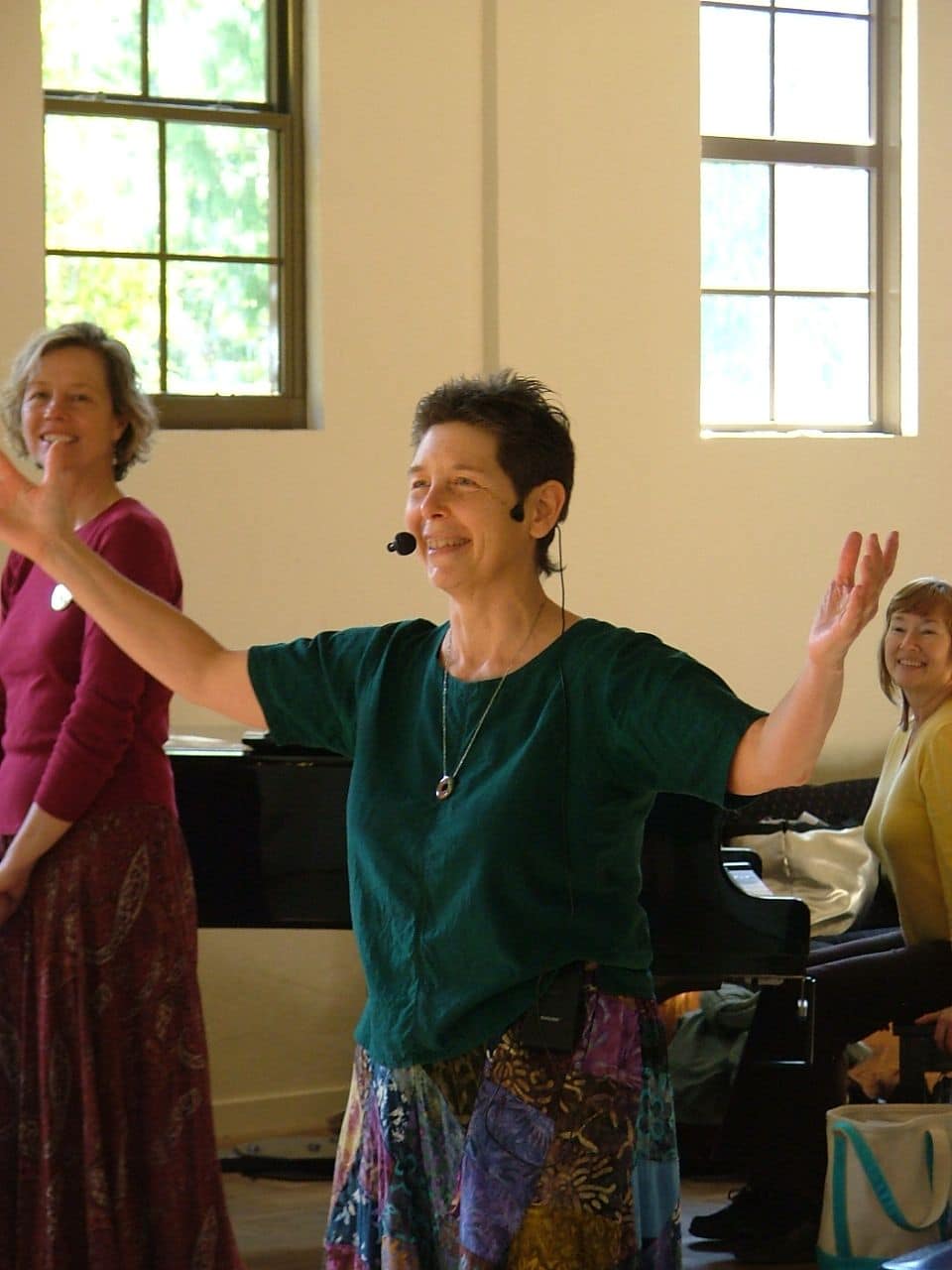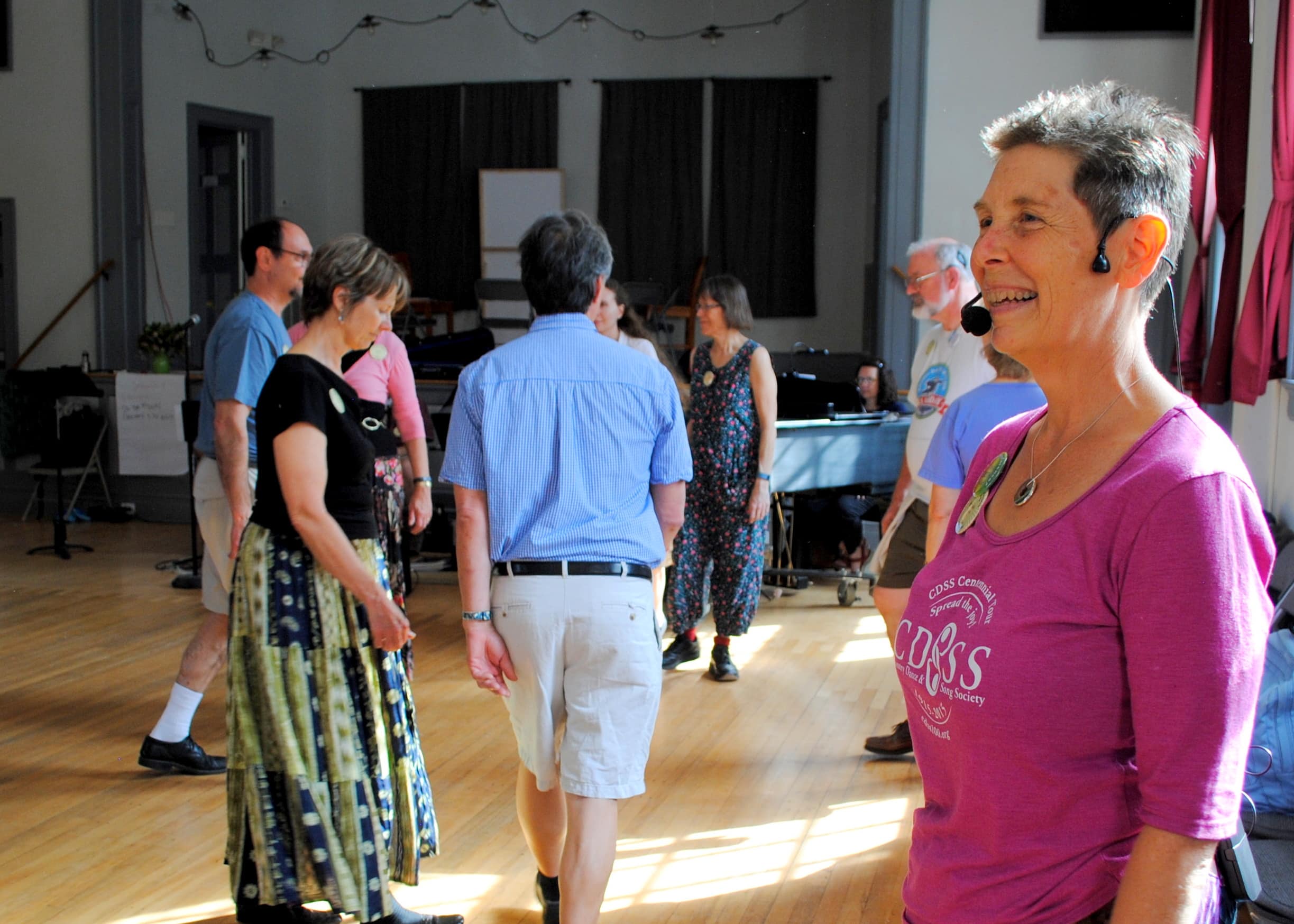“What a fabulous opportunity for group and one on one help from Brooke. Her experience with global terminology provided me with the courage and tools I need to implement it in a way that makes sense for my community.”
–Previous workshop participant
January 22, January 29, February 5
a 3 week online course
1:00 p.m. ET
(10:00 a.m. PT/18:00 GMT)
Taught by Brooke Friendly
As of January 15, registration is closed for this course.
This course is geared toward ECD teachers with in-person calling experience. Contra callers, community and family dance leaders, and ECD callers with online calling experience only are welcome to apply.
Develop your proficiency and teaching techniques for using global and positional calling for English country dance. Explore strategies and refine your teaching and prompting, translating from books and your dance cards, and program planning. Examine social aspects, working with your local community, calling “away from home,” teaching at schools and community dances, and more. The varied format of lecture, discussion, exercises, and breakout sessions, as well as the assigned reading and homework prior to and between sessions, will give you both food for thought and practical strategies. Whether you have already started to teach with global/positional terminology, or you want to learn how, this is a great opportunity to build and refine your skills.
Brooke Friendly

Brooke Friendly has danced and taught using global/positional terminology in K-12 schools, university, lifelong learning, and community settings since 1981. Known for her warm yet commanding personality, clear teaching, sense of whimsy, and focus on community, she has been on staff at week-long camps, weekends, and festivals throughout North America, England, and Australia. Brooke has led numerous workshops for callers, including online courses, using a balance of engaging material, lively discussions, and interesting exercises.
Registration and Cost
Course fees are on a sliding scale: you decide the price that works for you! The suggested price for the three sessions is $75; the minimum price is $15.
The course is limited to 16 participants.
If the course is oversubscribed, we will place you on the waiting list. Your full ticket price will be refunded if your application is not accepted.
Click here to apply. You will be prompted to log in with your CDSS Commons account or create a new account. If you have any issues with accessing the registration form or logging into the CDSS Commons, please email [email protected].
After you complete your application through the Commons, you will get a link to a survey which form asks a few questions about your calling experience. Your application will be considered complete once we receive your filled-out survey. We will review the information you provide and attempt to create a balance of experience levels among the participants. Priority will be given to people who haven’t taken a similar course in the past.
Course Details
We will rely on Dancing the Whole Dance: ECD (required reading prior to the course, and included with your course registration fee) and some material from The Playford Assembly. Both are available from the CDSS Store.
The course includes homework prior to the course and between the sessions. The homework will include reading and a variety of practical work such as program planning and translating dance directions. All sessions will contain breakout groups and/or pairs for both discussion and practical work.
Homework prior to Session One
- Read Dancing the Whole Dance, a booklet by Brooke Friendly available from CDSS in print or digital format (digital format is included in the cost of registration for this course)
- Send questions and challenging dances
Session One will introduce
- Philosophy, advantages and challenges of teaching this way
- Social considerations
- An initial translation exercise in pairs
Homework between Sessions One and Two
- Work on your challenge dances
- Two dance ‘translation’ assignments
- Begin program planning assignments
Session Two will dive deeply into teaching and learning strategies for the nuts and bolts
- Terminology and translating
- Prepping
- Teaching
- Prompting
Homework between Sessions Two and Three
- Complete program planning assignments
- Read caller attribute document
- Work on your challenge dances
Session Three will
- Discuss program planning
- Setting goals
- Delve more into social considerations
- Compare working with your local community to calling away from home
- Further explore distinct strategies to improve repertoire and prep, teaching, and prompting
After the course (including when in-person dancing starts again), Brooke will be happy to answer individual questions and give feedback on translation for additional dances or discuss questions about specific challenging situations.

 Dance, Music, & Song Camps
Dance, Music, & Song Camps